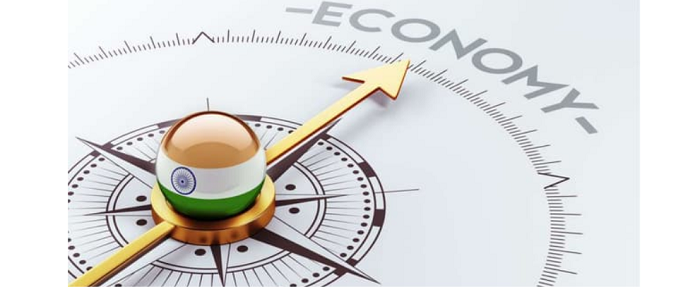
India’s Economy Beats Expectations, Achieves 6.1% Growth in Q4; Fiscal Year 2022-23 Records 7.2% Expansion
In a remarkable turn of events, the Indian economy exceeded all projections by achieving a growth rate of 6.1% in the fourth quarter of the fiscal year 2022-23. The data released by the government on Wednesday showcased a significant improvement from the revised 4.5% growth witnessed in the previous quarter. This growth surge was primarily driven by a 5.5% expansion in the agriculture sector and a 4.5% growth in manufacturing. Furthermore, construction, services, and mining sectors also experienced impressive growth rates.
The economy’s performance throughout the fiscal year exhibited a growth rate of 6.1% during the March 2023 quarter, while the rates were recorded at 4.5% in October-December 2022 and 6.2% in July-September 2022. The initial quarter of April-June 2022 witnessed an outstanding growth rate of 13.1%. Although the high-frequency indicators indicated a positive momentum in April, with increased tax collections and a flourishing services sector, a decline in exports and imports posed some challenges. Nevertheless, apart from monsoon variations and geopolitical risks, the economy is expected to surpass the initial estimate of 6.5% for the current fiscal year (April 2023 to March 2024).
Several positive factors contribute to the stability of the economy, including a consistent current account deficit, rising foreign exchange reserves, and a decline in inflation to an 18-month low of 4.7%. However, risks such as below-normal monsoon, potential crop damage due to hot weather, and volatile global commodity prices that may fuel inflation should be considered. Economist Rumki Majumdar from Deloitte India commented on the pleasantly surprising yet somewhat expected GDP numbers.
The revival of the manufacturing sector is particularly noteworthy as it had been a concern for policymakers due to its modest recovery. Majumdar expressed enthusiasm about the strong growth in manufacturing and construction, highlighting their significance in attracting private investment in the upcoming quarters. With high levels of industry capacity utilization and increased government capital expenditure, private investments are expected to enter the market earlier than anticipated. Additionally, high-frequency data on credit disbursement and light diesel oil consumption indicate a rise in manufacturing activities for this fiscal year.
The Gross Value Added (GVA) growth for the fiscal year ending in March 2023 stood at 7%, compared to the previous year’s growth of 8.8%. Notably, the manufacturing sector witnessed accelerated GVA growth of 4.5% in the March 2023 quarter, in contrast to a meager 0.6% growth observed a year ago.














